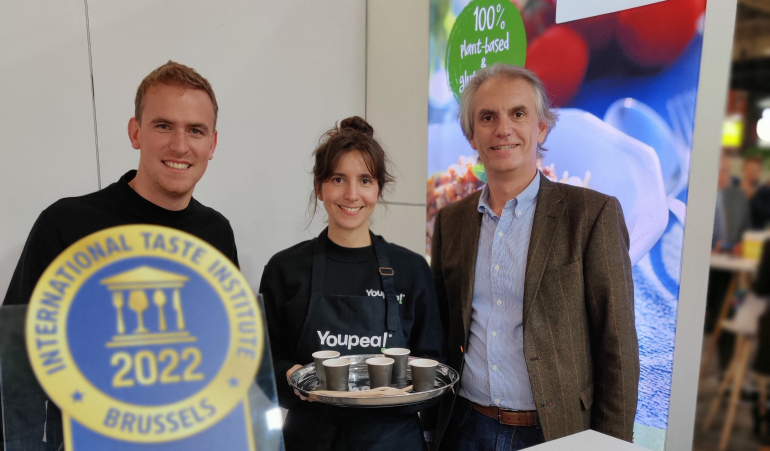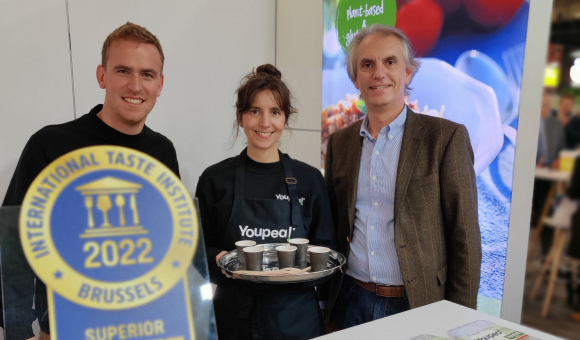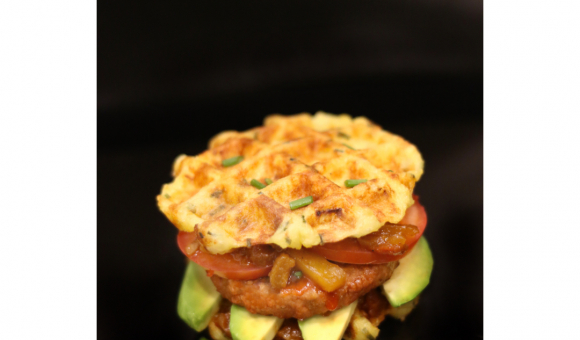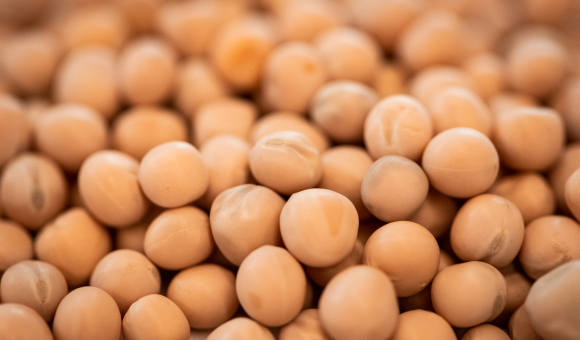
Facing the major challenges and successive crises that are arising (Covid19, climate change, war in Ukraine, etc.), food companies are reinventing themselves and developing their production models to respond to the challenges of resilience and sustainability. In Wallonia, this is also the case. We met with Youpea, a brand offering products made from sustainable and local plant-based proteins, developed by two companies from the meat and pea industries respectively. An unnatural combination? On the contrary, an innovative project of its time to be discovered at SIAL in Paris, the largest international agri-food trade fair. Meeting.
It is now known that the sustainability challenges that affect the global agri-food industry include the consumption of proteins of animal origin: increasing quality and reducing quantities to reduce greenhouse gas emissions (CO2, CH4, etc.) and the space that agricultural land takes up in natural environments. In Wallonia, known for its ‘meat’ sector that still has family-based and tradition production mechanisms, the sector is seeing more and more collaboration between stakeholders in the chain to develop the whole system towards greater sustainability.
Helped by Belgian and regional stakeholders such as Fevia, the Belgian food industry federation or Wagralim, the Walloon agri-food competitiveness cluster or financial tools such as Sogepa, the private investment fund or SRIW, the Wallonia regional investment company, international strategic innovation projects are emerging. What type and with what objectives? We’ve taken advantage of SIAL which is currently being held to meet the team of Youpea, a brand of meat substitutes that has recently been launched on the market thanks to the collaboration between two companies from two sectors that on the face of it seem remote: peas and meat.
Wallonia Export: Hello Aurélie. Could you first tell us what the YouPea brand is proposing?
Aurélie Maldague: Youpea is simple, it’s a range of Belgian plant-based products (rapeseed, endive, peas, etc.) with a high protein content proposed as an alternative to meat: Nuggie, Burgie, Hagie... there’s something for all tastes and we target a broad audience: veggies, flexitarians, health, family, etc.
Plant-based meat substitutes – have they become a societal challenge?
AM: Yes, absolutely. In 2016-2017, European demand was 27 million tonnes of raw protein which was quite considerable. However, at that time, 17 million tonnes were imported, of which 13 million tonnes of soy came from Brazil, Argentina and the USA. As the current trend is a flexitarian diet, prioritising quality over quantity and the carbon footprint, etc. plant-based proteins have taken a greater place in the public’s dietary habits.
In 2020, global consumption exceeded 13MT of plant protein and we predict this to be 97MT in 2035. To replace distant and unsustainable imports from the American continent, Europe has started to take action. Today, Italy (soy) and France (protein peas) are the largest producers of plant-based proteins. There are therefore beneficial sources for a more local supply than cross-Atlantic.
How is your product sustainable and innovative for consumers?
AM: Our specific feature, at the heart of the project, is that all our ingredients (peas, endive and rapeseed oil) come from local producers who are either Belgian or in the north of France. In a nutshell, we have a real short circuit as we’re in constant contact with all the members of the production chain. In terms of health, our products have a nutriscore A, with little saturated fat and little sugar and they have no allergens or intolerance (the main ones at least), no gluten, no nut, no soy and no lactose. We don’t use any additives or preservatives and we prioritise natural ingredients as far as possible.
Is this transparency important to you?
AM: Absolutely. We want to show that meat substitution products can be healthy and natural and beat this cliché of ultra-processed, fat and sugary products. This discourages people who want to diversify their food by reducing their consumption of proteins of animal origin.
How and why did the Youpea project emerge?
AM : Our brand is the fruit of collaboration between two Belgian companies, Cosucra and Vlevia. By grouping local farmers and Belgian processing companies, they wanted to offer a range of health ‘plant-based’ products anchored locally in Belgian produce that was more sustainable than the current similar products of industrial origin…
Meat and peas – isn’t that a slightly unnatural combination?
AM: On the contrary, it’s quite logical. These sectors are undergoing profound changes and by combining their respective skills, the two companies can offer new, innovative products that meet the current sustainability challenges: health, environment, short circuits, reduction in meat consumption, etc. They have really understood the need to respond to the public’s soaring interest in plant-based products and meat alternatives. Vlevia, as well as Cosucra, want to diversify. Vlevia contributed its expertise to the production and has knowledge of the market, consumer behaviour, portion sizes, etc. and Cosucra contributed its expertise in terms of development and quality.
How long does it take to complete a project like this, from the idea to market launch?
AM: In 2019, the Collège des Producteurs, an organisation representing producers as well as the Association de Promotion des Protéagineux et Olléagineux, the association to promote proteins and oil seeds, decided to focus mainly to protein peas. The Go4plant project, for a plant-based alternative of Belgian origin made from protein peas, finally emerged in 2021. With the financial contribution from the Walloon region (5 million euros of investment from the SRIW and Sogepa), the company has been to develop then market an initial range of products, under the name Youpea, that have been available in Belgian supermarkets since February 2022. We are here at SIAL today to attack foreign markets, with France at the top of the agenda.
Do you intend to get down to some cooking at SIAL?
AM: We should (laughs). Wallonia Export is providing us with a shared kitchen in the Walloon community pavilion. It’s obviously a beneficial service, in addition to the rest.
Discover the Youpea project just over here >>> https://www.youpea.com/en/
About Wal Food
Are you looking for a production method (Organic, Halal, Kosher, etc.)? A private label (own brand products)? Do you focus your activities on a type of packaging (vacuum, frozen, smoked, etc.)?
Visit Wal Food, a website listing over 300 companies that are active in the following sectors:
Craft beers and typical alcohols; Bakery, pastries, biscuits, etc. Chocolate and sweets; Water and non-alcoholic drinks; Spices and condiments; Fruit and vegetables; Food ingredients; Fish, crustaceans and shellfish; ‘Deli’ products; Dairy products, eggs and derivatives; Commercial and collective catering; Meat and cold meat.
For any information about these companies of the Walloon agri-food potential, there’s just one address: agrifood@awex.be
Interview managed by Jonathan Avau (Wallonia Export)
Photos © Wallonia Export & Youpea!



